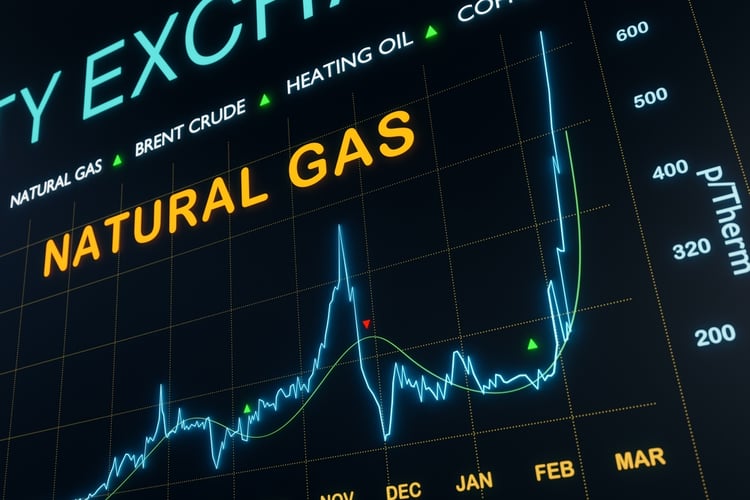July 13 Inflation Report: US Energy Prices Keep Rising

The US Bureau of Labor Statistics published the latest Consumer Price Index (CPI) report on July 13, showing that inflation remains high, especially in the energy sector. The overall CPI increased by 1.3% in June 2022, and by 9.1% in the 12 months from June 2021 to June 2022. Energy prices in particular suffered a drastic increase of 7.5% in June alone, and a 12-month increase of 41.6%.
Spiking energy prices have a financial impact on homeowners and businesses who are fully dependent on utility services. However, property owners who have invested in energy efficiency and onsite renewable generation are affected less. Energy efficiency reduces their consumption per square foot, while onsite generation reduces the amount of energy purchased from external sources.
Minimize your utility costs with an energy retrofit and a commercial solar array.
Commercial solar arrays and other onsite generation systems are not limited to electricity savings. They can also help tenants save natural gas, heating oil, diesel and gasoline when combined with other technologies.
- Renewable electricity can power heat pumps, which can be used for both space heating and hot water. This is a cost-effective heating alternative that doesn’t depend on natural gas or heating oil.
- When a commercial building with onsite generation is equipped with EV charging stations, renewable electricity can also be used for transportation purposes. Building occupants can use DC fast chargers to fill up their batteries within minutes, instead of waiting for hours while their EVs are plugged to Level 1 or Level 2 chargers.
July 2022 CPI Report: Breaking Down Energy Prices

The CPI report provides an overall inflation rate for energy, which is then broken down into two main categories.
- Energy commodities: Fuel oil and gasoline (all types).
- Energy services: Electricity and piped natural gas.
These products and services are critical for homeowners and businesses. Most buildings rely on fuel oil or natural gas for their heating needs, while electricity is used to power all other appliances. Gasoline prices increase commuting costs directly, unless a company has a flexible work-from-home policy.
The following table summarizes Consumer Price Index data for the energy sector, starting with the overall inflation rate, and then by category and by product:
|
Item Description |
CPI Change, June 2022 |
CPI Change, 12 months |
|
Energy (in general) |
+7.5% |
+41.6% |
|
Energy commodities Gasoline (all types) Fuel oil |
+10.4% +11.2% -1.2% |
+60.6% +59.9% +98.5% |
|
Energy services Electricity Utility natural gas |
+3.5% +1.7% +8.2% |
+19.4% +13.7% +38.4% |
Energy inflation means higher costs for building owners who are fully dependent on utility services. However, this also means that energy efficiency measures and onsite generation yield more savings compared with one year ago. For example, if your electricity tariff increased from 16 to 18 cents/kWh, the savings achieved for every 10,000 kWh of solar generation also increased (from $1,600 to $1,800).
Considering the 59.9% increase in gasoline prices, electric vehicles are becoming a more attractive investment. This is especially true if you purchase a model that qualifies for the EV federal tax credit, which reduces your net cost by up to $7,500. Building owners can take advantage of this growing market by deploying DC fast chargers, and selling 15-20 minute recharges for visitors who own EVs.
Similar conclusions can be drawn in the case of fuel oil and natural gas, both of which are used for heating purposes in buildings. When their prices are up by 98.5% and 38.4%, the business case for switching to heat pumps improves, especially if they are powered by a commercial solar array.
Avoiding High Energy Prices with a Professional Energy Audit

There are many green technologies that are capable of reducing energy costs in buildings, but each property is unique. You may find that a specific technology is very effective in one property, while offering minimal savings in another one. An energy audit is the best starting point, since you can rely on professional consultants. They can identify the most effective energy conservation measures for your property, and they can also analyze the feasibility of renewable generation and EV charging infrastructure.
Energy consultants not only offer technical guidance, but also financial advice. They can help you qualify for grants and rebates, reducing the net cost of your building upgrade, which can be combined with tax incentives in low-interest financing options. NY Engineers clients often qualify for multiple energy incentives that reduce upfront costs to zero, and low-interest loans that can be fully paid with the savings achieved.

Michael Tobias
Michael Tobias, the Founding Principal of NY Engineers, currently leads a team of 150+ MEP/FP engineers and has led over 4,000 projects in the US
Join 15,000+ Fellow Architects and Contractors
Get expert engineering tips straight to your inbox. Subscribe to the NY Engineers Blog below.

